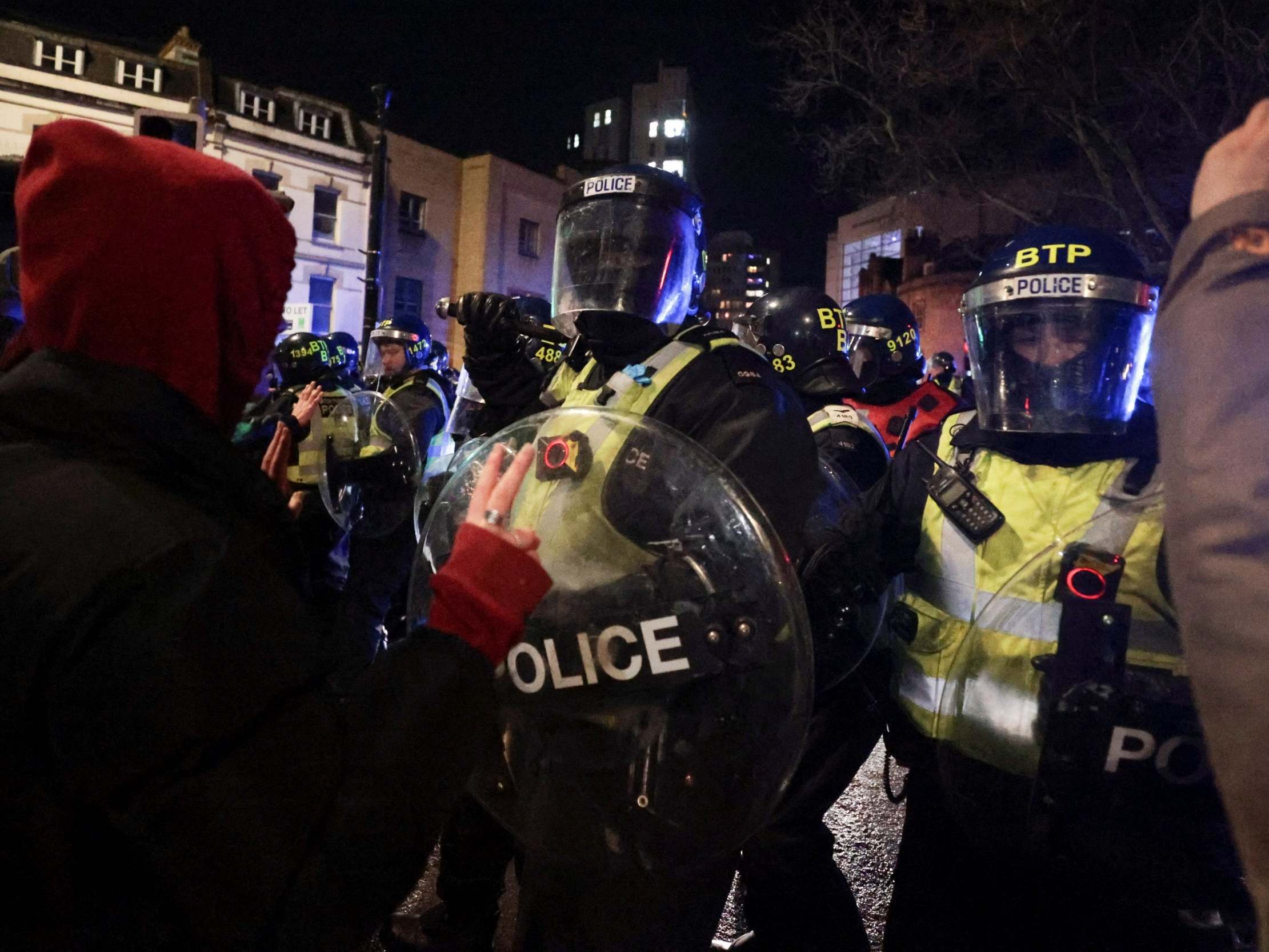Policing Bill: MPs vote for ‘draconian’ protest laws despite mounting opposition
Bid to remove protest powers from bill voted down

MPs have voted for “draconian” protest laws in spite of mounting warnings over human rights and questions over whether police want or need the powers.
A bill backed by the House of Commons would allow police to impose restrictions on protests based on noise and ban demonstrations by a single person.
It would also create a criminal offence of “public nuisance”, lower the bar for prosecuting people who violate conditions and increase maximum prison sentences to a year.
The Liberal Democrats failed in a bid to cut the controversial clauses out of the Police, Crime, Sentencing and Courts Bill on Monday after their amendments were voted down – the main one by 354 votes to 273.
The party’s home affairs spokesperson, Alistair Carmichael, called the protest laws “dangerous and draconian”.
“They undermine the proud British tradition of standing up for what we believe in and respecting others’ rights to do the same,” he added.
“This new law would allow the police to clampdown on protests for being too noisy, and create 10-year prison sentences just for causing someone ‘serious annoyance’.”
And Labour’s Sarah Jones told the Commons the bill’s restrictions on protest went too far, threatening “the fundamental balance between the police and the people”.
“The point of protest is to capture attention,” said Ms Jones. “Protests are noisy, sometimes they are annoying, but they are as fundamental to our democracy as our parliament.”
Conservative former cabinet minister David Davis agreed, pointing to a letter voicing concerns from a number of police chiefs as he told MPs: “It hasn’t just been the sort of lefty liberal legal fraternity that have been worried about this.”
The government has defended its widely-opposed proposals, telling journalists that the National Police Chiefs’ Council (NPCC) and the Metropolitan Police had “been consulted and support” them.
But The Independent has learned that neither police chiefs, elected commissioners, nor Britain’s largest force requested the power to crack down on noisy protests.
Parliament’s Joint Committee on Human Rights questioned the need for the changes, finding “no evidence of a gap in the law” that needed to be filled and that there were already a “range of powers to deal with noise that impacts on the rights and freedoms of others”.
The bill, which will now be considered by the House of Lords, runs to almost 300 pages and contains laws covering a wide range of issues such as violence prevention, police driving standards and criminal damage to statues.
Ahead of the vote, the Council of Europe’s commissioner for human rights wrote to the speakers of the House of Commons and Lords warning that the protest laws may violate human rights.
Dunja Mijatović said the powers could be “arbitrarily applied” and appeared to be an extension of a “worrying trend” of growing international restrictions on peaceful protest to “minimise dissent”.
United Nations human rights experts, parliament’s Joint Committee on Human Rights, the Equality and Human Rights Commission and numerous civil society organisations and academic experts have raised similar concerns.
Several charities signed a petition with almost 600,000 signatures that called for the government to drop the protest laws, as well as controversial proposals to increase stop and search powers and criminalise Gypsy and Traveller communities with a new trespass offence.
The bill would also introduce longer prison sentences for serial burglars, knife carriers, killer drivers and children who commit murder, as well as changing release provisions to keep some prisoners inside for longer.
The proposals sparked nationwide “kill the bill” protests, including some that saw violence against police, and retired officers have said its provisions may create future conflict.
Owen West, a former chief superintendent who led protest policing in West Yorkshire until 2019, said police would be put in a “no-win” position.
“Once a lower threshold for police intervention is provided in law there will be an expectation, not least at the political level, for the police to exercise that power which may lead to conflict,” he added.
“This may lead to increased instances of violence and disorder than is currently the case.”
Subscribe to Independent Premium to bookmark this article
Want to bookmark your favourite articles and stories to read or reference later? Start your Independent Premium subscription today.

Join our commenting forum
Join thought-provoking conversations, follow other Independent readers and see their replies